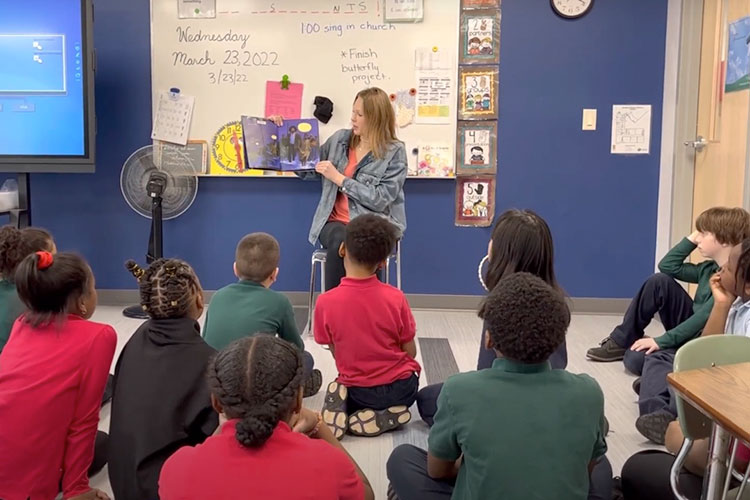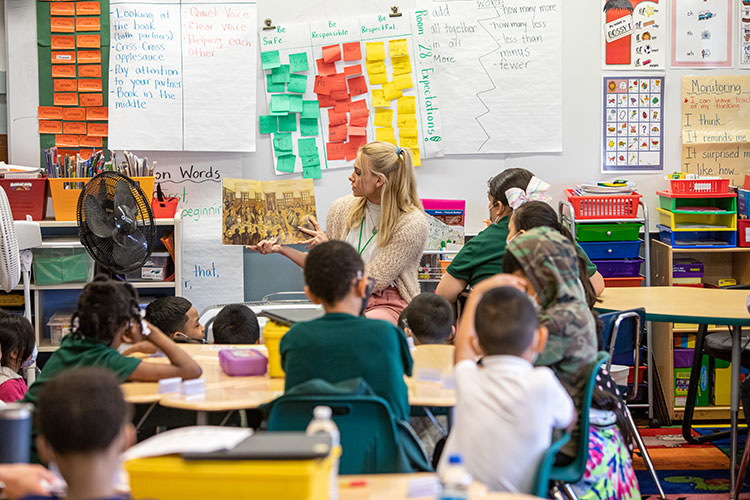Learning to read is vitally important for children.
In 2014, the Wisconsin Legislature in State Statute 18.19 (14), mandated all elementary education, early childhood, reading teacher and reading specialist candidates who wish to certify in the state must earn the cut score (passing) on the Foundations of Reading (FoRT) test. The Wisconsin FoRT is the same examination as the Massachusetts Test for Educator Licensure (MTEL) Foundations of Reading Test; this exam was chosen because legislators believed Massachusetts to have a high-quality K-12 education system, according to Kristine Lize director of the School of Education’s EAA English Education program and former coordinator for the FoRT.
Since implementation, concerns and questions about the FoRT and the benefits of the requirement for certification have been raised.
UWM and other Schools of Education in the University of Wisconsin System discovered that many teacher candidates struggled to earn the cut score on the test both in the state and in similar exams across the nation.
As a result, The UW System commissioned a FoRT work team of literacy instructors across the system to collaborate to support teacher candidates as they prepare for the exam.
Through her engagement with them as they prepared, Lize got to know many of the students who struggle with the test. “Some of them have straight As and have met all program expectations, but struggle with demonstrating their knowledge in this high stakes test; they are prepared, knowledgeable, and so desperately want to be teachers, but find the four-hour computer-based test creates a lot of anxiety.”
As a result, Lize and other faculty representing the UW Schools of Education organized a research project to better understand the impact of the FoRT on both teacher candidates and teachers’ self-efficacy and self-identity.

The study results were published in the Wisconsin State Reading Association (WSRA) Journal in August 2021 and shared at both the Literacy Research Association convention in November 2021 and the WSRA convention in February 2022.
Survey results showed that 249 of the 451 respondents (55%) passed the FoRT on the first attempt. In comparison, according to data collected by the Department of Public Instruction, 12,894 of the 19,458 test takers (66%) passed the FoRT on the first attempt since the start of testing in Wisconsin.
As for how the test made them feel about themselves and teaching, those who passed the test on the first or second attempt had positive feelings. Those who had to take the test more times and/or still hadn’t passed it yet had more negative feelings.
These were reflected in the more open-ended questions in the survey.
“I’ve always been good at taking tests, so it didn’t make me feel strongly one way or another,” one wrote. “I have never been a good test taker so I felt that a test shouldn’t determine if I am a good teacher or not,” wrote another.
The study also looked at how teacher candidates prepared for the test and how much time they spent preparing.
All this is happening in the context of teacher shortages in Wisconsin and across the country. A recent EdWeek Research Center national survey found that 15% of district leaders across the nation are facing “very severe” staffing shortages, while 25% said they’re “severe” and 37% classified staffing challenges as moderate.
(In 2019, in the face of a teaching shortage, the statute was amended to allow special education teacher candidates to certify by completing a FoRT alternative. Only special education teacher candidates who studied at an educator preparation program that received approval from the Department of Public Instruction were eligible. These candidates were allowed to demonstrate their understanding of how to teach reading through an alternative measurement including coursework, coaching and feedback, and a portfolio.)
Whether shortages will impact the use of the FoRT remains to be seen, said Lize.
The UW System FoRT team will continue its work to support teacher candidates. Among their projects is an update of free online resources and modules published in August 2021 to include content related to the new version of the test, the FoRT 190, which teacher candidates will start taking in August 2022. Login information for the modules can be found at uwm.edu/fort under the heading NEW Foundations of Reading Self-Paced Modules.
Annie Marcks, who became FoRT coordinator in June, is teaching FoRT classes and offering small group tutoring for students taking the test. The Women’s Giving Circle, a group of education donors who pool their efforts, is supporting the work by offering scholarships to the students who take part in the tutoring to help offset the cost of the FoRT.
If you would like to help fund Research, please visit the Give to School of Education webpage.
